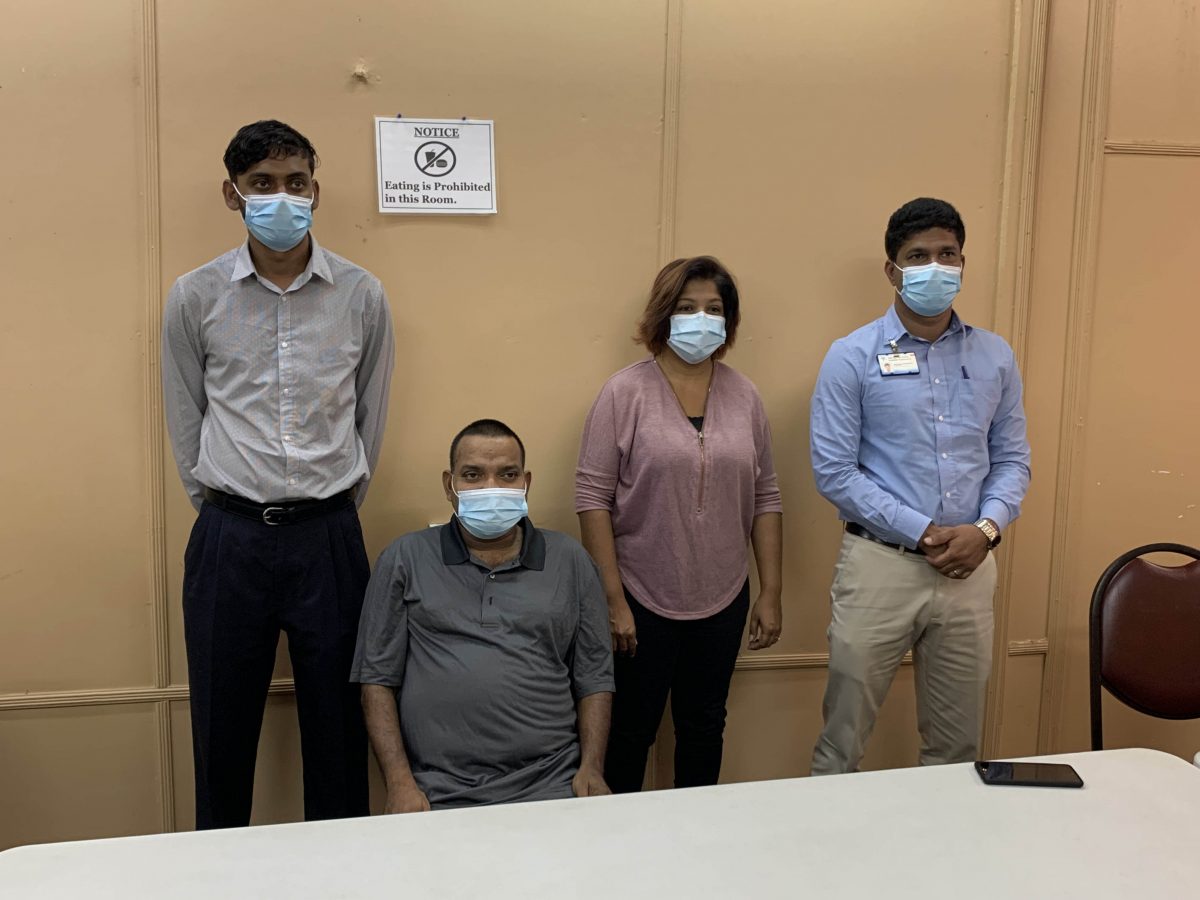The first controlled surgery on a hemophilia patient was recently conducted at the Georgetown Public Hospital (GPH), with the recipient of the procedure expected to make a full recovery.
Forty-two-year-old Looknauth Mohammed developed hernias and needed surgery to have the issue corrected. However, he has hemophilia, which is a rare blood disorder where persons are missing the factor in the blood that is responsible for clotting.
Local hemotologist Dr Kamela Bemaul-Sukhu told a news conference at the GPH on Thursday that a proper diagnosis depends on the severity of the cases. If a patient has less than one per cent of the necessary blood-clotting factor in his system he will be classified as a severe patient and as a result, can be at risk of bleeding. This factor is known as Factor VIII (factor eight), also known as an anti-hemophilic factor (AHF), which is an essential blood-clotting protein.
Dr Bemaul-Sukhu explained that Mohammed had ongoing bleeding and as a result needed Factor VIII injections twice weekly to avoid bleeding. “So it was a challenging decision to take because one is that we do not have the experience surgically with this procedure and then the second thing is that we do not know how he would react to just the factor infusion, if he would require blood, and all of those things
Once the decision to operate was made, the haemotologist noted that they had to get the World Federation of Haemophilia on board for support with the infusions and subsequently get the surgery department on board. The donation of Factor VIII came through a collaboration with the Guyana Hemophilia Society. Unless this factor can be given, a surgery would be very risky, “So surgically of course you know you’re going deep into the skin, so if you’re to do a surgery and make such a huge cut, to stop that bleeding it will be very challenging,” the haemotologist explained.
She noted that surgeons are generally hesitant to operate on patients with hemophilia because of the complications involved. She mentioned that patients have bled out on the operating table, with doctors being unable to do anything to save them.
“So it’s the first time it was done in Guyana’s history that a procedure like this was done, so it’s a surgery for haemophilia patient in a controlled setting. So what I mean by controlled setting is that we did the surgery and controlled the bleeding by just administering the factor that’s missing in haemophilia,” Dr Bemaul-Sukhu added.
She noted that prior surgeries that were possibly done were done as an emergency, which is not in a controlled setting as there is no factor infusion, with doctors probably not even knowing that the patient had haemophilia. Thankfully, during the surgery, she noted that Mohammed, after being administered the factor infusion, did not need any blood transfusions or any blood products.
The haemotologist is grateful and happy that the surgery department and Dr Navindranauth Rambaran were so willing to assist with the procedure and said it was a big step in helping the haemophilia population. “I just want to thank him for taking that huge step and helping the hemophlia population not just one patient because once we have started of course we will be bothering him again for more surgeries.”
Meanwhile, Head of General Surgery, Dr Rambaran, said that he and team were cautiously optimistic that they could conduct an elective surgery on Mohammed for hernias and as a result lots of planning went into it as the risk of bleeding was very high.
A number of precautions had to be taken as the department consulted and collaborated with a number of other specialists to ensure the success of the surgery. “We do these surgeries all the time but we had to take special precautions and of course work with other specialists,” Dr Rambaran informed.
The head of surgery is pleased that Mohammed has made strides in his recovery even though it was not “straight forward” and added that while the hernias were fixed bilaterally, the patient developed a small wound infection which had to be treated. All in all, Dr Rambaran and team expect the patient to make a full recovery.
Mohammed, meanwhile, noted that he was happy to be able to have the procedure and be on the road to recovery. He shared that since he was younger he had been in and out of the hospital and having blood transfusions.
He also expressed gratitude to the team of doctors along with the Guyana Haemophilia Society, adding that he was also grateful for the Factor VIII infusions which has made his life a bit easier.
With the first surgical procedure being successfully performed on a hemophilia patient, Dr Bemaul-Sukhu expressed the hope that the treatment can be extended and that Mohammed and other patients can benefit from more life changing procedures with the use of the Factor VIII infusions.






